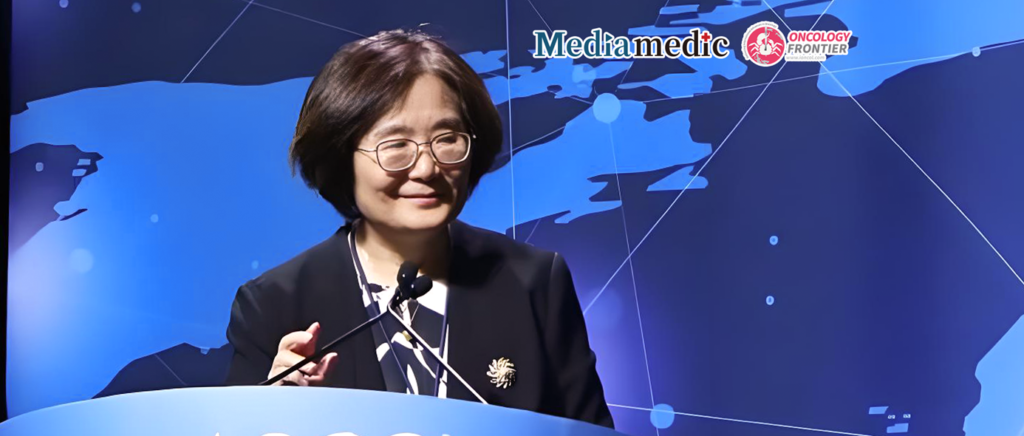
The 2024 American Society of Clinical Oncology (ASCO) Annual Meeting has successfully concluded, showcasing groundbreaking oncology research. Dr. Chang Liu from Professor Lin Shen’s team at Peking University Cancer Hospital presented their study on the efficacy and safety of CCR8 monoclonal antibody LM-108 combined with PD-1 antibody in gastric cancer patients. Professor Shen’s presentation at ASCO sparked significant industry interest. Oncology Frontier invited Dr. Chang Liu to provide an in-depth analysis of this study’s breakthroughs and significance.Dr. Chang Liu:
With the rapid adoption of PD-1 antibodies in treating gastric and other cancers, strategies to overcome PD-1 resistance have become a key focus. Addressing acquired resistance in patients who initially responded to PD-1 therapy is particularly challenging.
This study targeted CCR8, a chemokine receptor predominantly expressed on regulatory T cells (Tregs), which play a critical role in immune suppression within the tumor microenvironment. By selectively depleting tumor-infiltrating Tregs, we aimed to overcome PD-1 resistance. The data shared at ASCO comprises results from three phase I/II studies conducted in China, the U.S., and Australia, evaluating the efficacy and safety of combining LM-108 with PD-1 therapy in gastric cancer patients.
This ASCO presentation included data on 48 gastric cancer patients, covering safety analysis for all patients and efficacy outcomes for 36 evaluable patients. Among the 48 patients, around 60% had undergone two or more lines of prior treatment, and nearly 90% had experienced disease progression after PD-1 therapy.
For the 36 evaluable patients, the objective response rate (ORR) was 36.1%, and the disease control rate (DCR) reached 72.2%, with duration of response yet to be determined. Notably, among patients progressing after first-line therapy and receiving second-line treatment, the ORR rose to 63.6%.
Our preliminary biomarker analysis based on immunohistochemistry of tumor tissue showed that in second-line gastric cancer patients with high CCR8 expression, ORR increased to 87.5%, suggesting that CCR8 expression might be a potential efficacy biomarker. However, more comprehensive analysis and confirmation are needed. Safety data also showed that combining CCR8 and PD-1 antibodies was manageable.
Overall, this in-depth analysis not only enhances our understanding of the safety profile of the LM-108 and PD-1 antibody combination but also opens up a promising, non-chemotherapy treatment option for advanced gastric cancer patients. As a non-chemotherapy choice, this combination therapy shows immense potential, offering valuable insights and treatment options for future combination therapy models.
Currently, we are actively enrolling patients in ongoing studies of LM-108 combined with PD-1 antibody, while continuing to explore predictive biomarkers to better identify responsive patient populations. In addition to gastric cancer, we have observed efficacy in other tumor types with this therapy. We eagerly look forward to sharing further positive developments and findings with t he oncology community soon.

Chang Liu
- MD, Peking University
- Attending Physician, Phase I Clinical Ward, Peking University Cancer Hospital
- Primary research focus: Early clinical and translational research on gastrointestinal tumors. Contributed to the CACA Guidelines for Integrated Cancer Treatment and Clinical Research of Cancer Drugs. First author of seven SCI-indexed papers.


